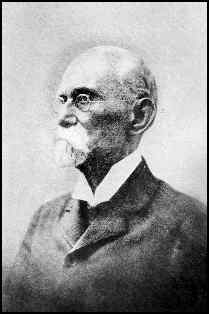
from the Diary of
General Maximo Gomez
 January 8, 1899
January 8, 1899
The American’s military occupation of the country is too high a price to pay for their spontaneous intervention in the war we waged against Spain for freedom and independence. The American government’s attitude toward the heroic Cuban people at this history-making time is, in my opinion, one of big business. This situation is dangerous for the country, mortifying the public spirit and hindering organization in all of the branches that, from the outset, should provide solid foundations for the future republic, when everything was entirely the work of all the inhabitants of the island, without distinction of nationality.
Nothing is more rational and fair than that the owner of the house should be the one to live in it with his family and be the one who furnishes and decorates it as he likes and that he not be forced against his will and inclination to follow norms imposed by his neighbor.
All these considerations lead me to think that Cuba cannot have true moral peace—which what the people need for their happiness and good fortune—under the transitional government. This transitional government was imposed by force by a foreign power, and therefore is illegitimate and incompatible with the principles that the entire country has been upholding for so long, and in the defense of which half of its sons have given their lives and all of its wealth has been consumed.
There is so much natural anger and grief throughout the island that the people have not really been able to celebrate the triumph of the end of their former rulers’ power.
They have left in sadness, and in sadness we have remained, because a foreign power has replaced them. I dreamed of peace with Spain; I hoped to bid farewell with respect to the brave Spanish soldiers with whom we always met, face to face, on the field of battle. The words peace and freedom should inspire only love and fraternity on the morning of concord between those who were combatants the night before; but, with their guardianship imposed by force, the Americans have turned the Cubans’ victorious joy to bitterness and have not sweetened the grief of the vanquished.
The situation that has been created for this people—one of material poverty and of grief because their sovereignty has been curbed—is ever more distressing. It is possible that, by the time this strange situation finally ends, the Americans will have snuffed out even the last spark of goodwill.
Related:
Frederick Funston Meets Gómez | The War for Cuban Independence